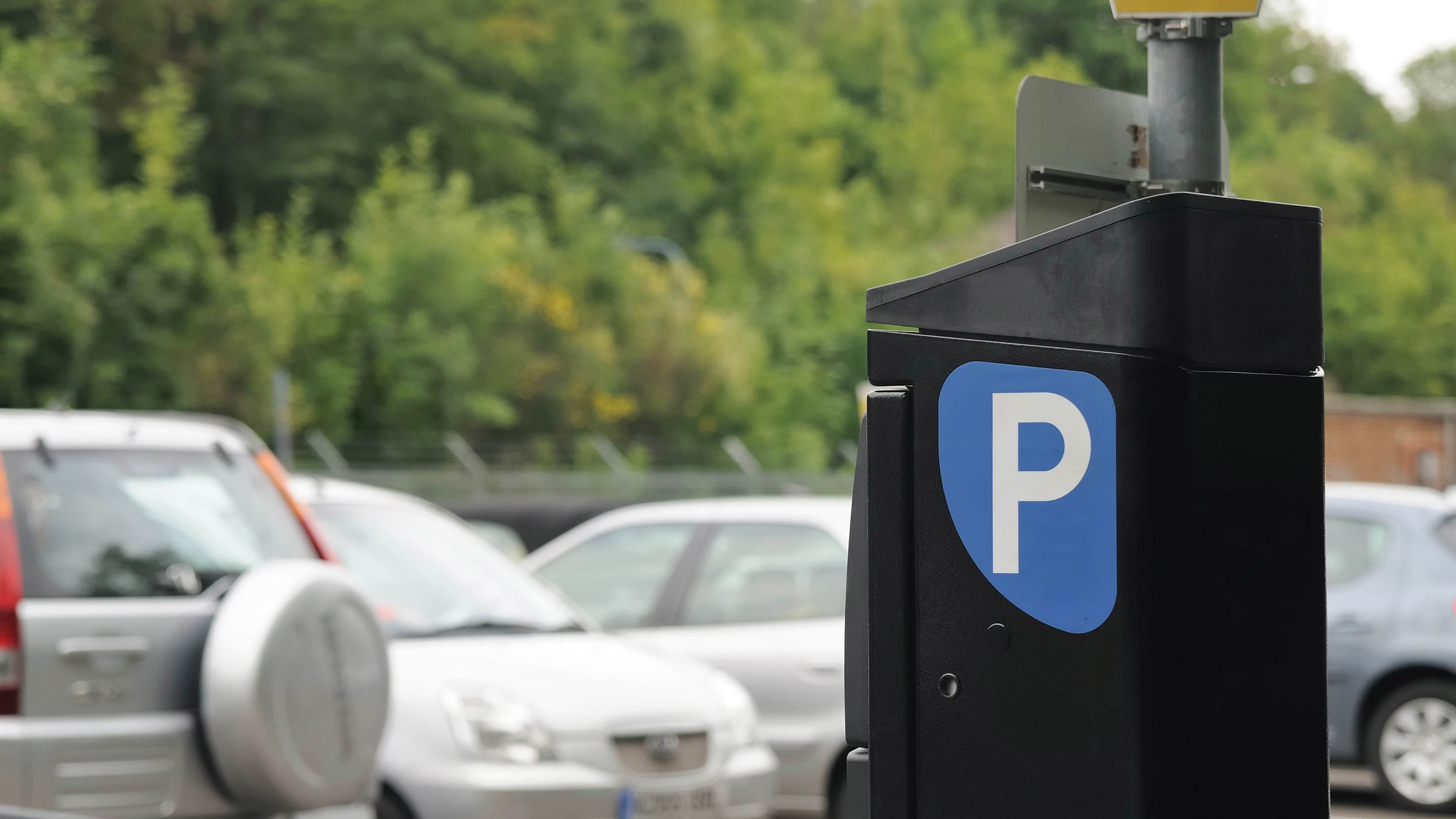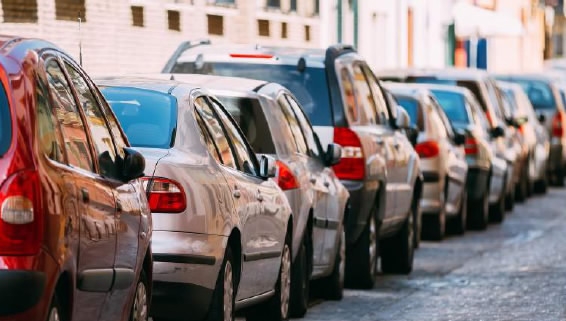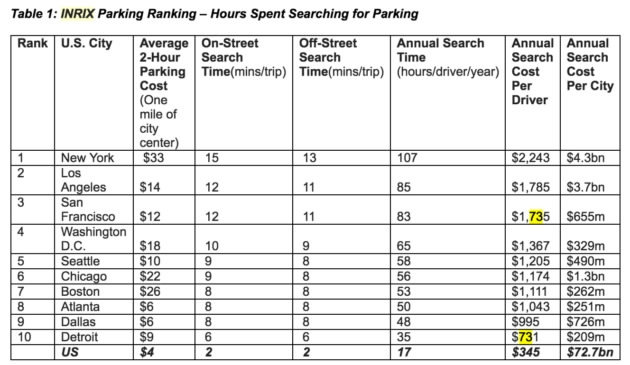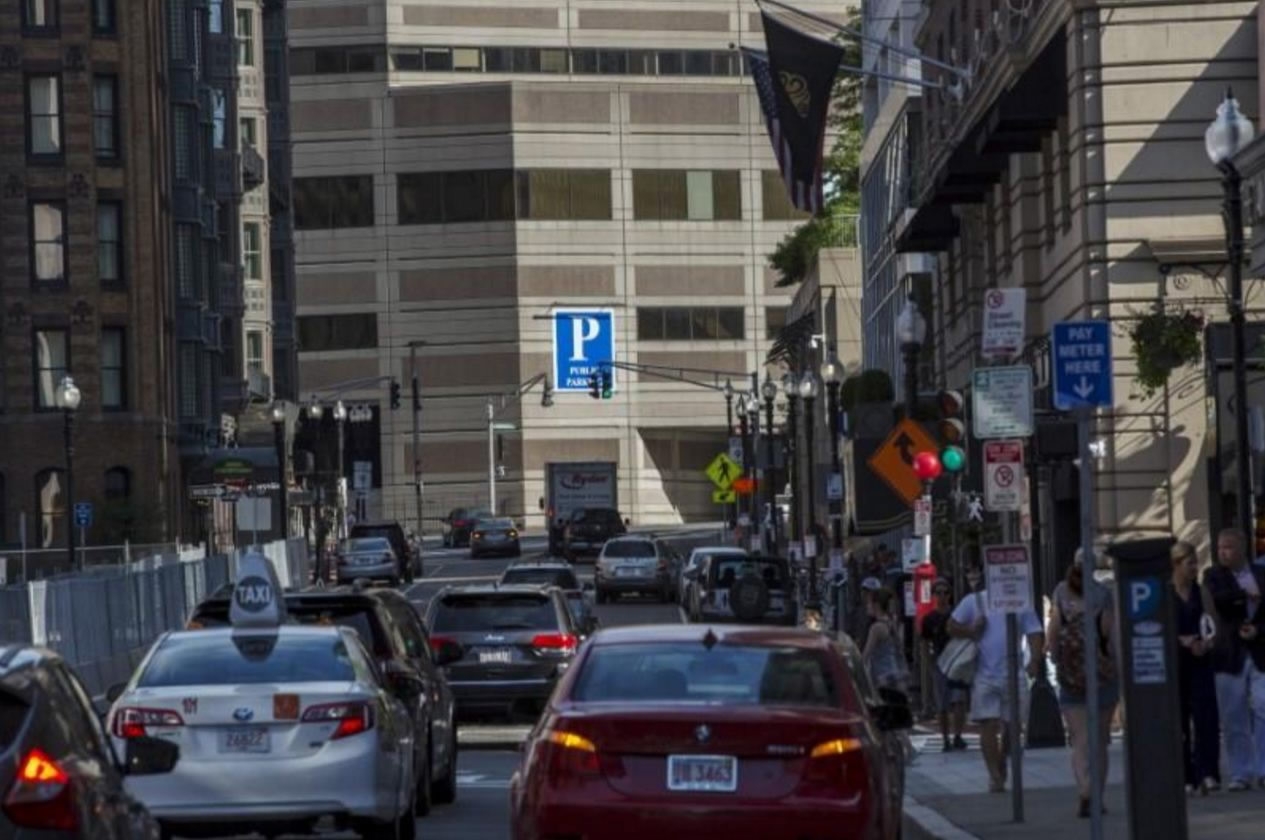
Business
12:52, 13-Jul-2017
Drivers waste billions dollars searching and overpaying for parking spots: study

US, German and British motorists spend billions searching for parking spots and paying for more time than they need to avoid tickets that would likely cost them less, concluded a study released on Wednesday by traffic data aggregator INRIX.
As cities become more congested, the direct and indirect costs of parking are a headache for motorists and policy makers who often have conflicting goals.
Drivers want cheap, plentiful parking spots, while many large cities' governments want to discourage vehicle traffic, reduce congestion and cut air pollution.

INRIX Photo
INRIX Photo
Automakers and technology companies, meanwhile, hope to profit by offering smooth parking guidance for motorists using smartphone apps or automated parking technology.
INRIX, based in Kirkland, Washington, provides traffic data to parking services and automakers. It also owns the ParkMe parking reservation app. German automaker BMW recently began offering the INRIX on-street parking locater service in its 5-series sedans.
The study of parking costs was based on information from the company's parking database and survey responses from 18,000 drivers in 30 cities in Britain, Germany and the United States.

Hours spent searching for parking in 10 biggest US cities /INRIX Photo
Hours spent searching for parking in 10 biggest US cities /INRIX Photo
The study concluded that the average US driver overpays 97 US dollars for parking a year, by buying extra time than needed while average parking ticket costs are 12 dollars a year.
Motorists in major US cities spend an average of 345 US dollars a year in lost time and wasted fuel to find parking places, according to INRIX estimates.
In the UK, motorists pay for excess parking time by an average of 209 pounds (269 US dollars), although average parking ticket costs are 39 pounds a year. The search for parking consumes time and fuel valued at 733 pounds.

Reuters Photo
Reuters Photo
In Germany, motorists pay 98 euros (112 US dollars) more than needed for their parking, to avoid an average 8 euros in parking fines.
Germans waste an average 896 euros a year hunting for parking places, the study found.
Fewer than 10 percent of respondents in the three countries used one of the many smartphone apps designed to help motorists find reserve and pay for a space in advance.
(Source: Reuters)
Related stories:

SITEMAP
Copyright © 2018 CGTN. Beijing ICP prepared NO.16065310-3
Copyright © 2018 CGTN. Beijing ICP prepared NO.16065310-3